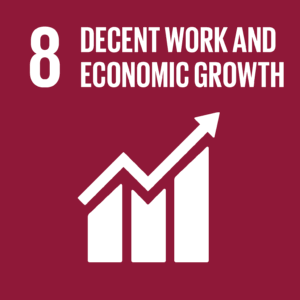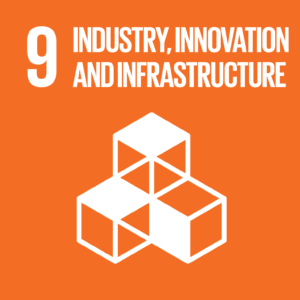
Companies increasingly have to deal with challenges such as new reporting requirements and legislation, the effects and risks of climate change, or increased investor attention to sustainability. The topic of sustainability has become noticeably more important in recent years. This article aims to show why education and training on the topic of sustainability are essential in and for companies, and is aimed at executives and sustainability managers in large companies and SMEs. He wants to create awareness that investments in education and training in the area of sustainability are not only worthwhile, but are indispensable for building a sustainable corporate culture.
Companies increasingly have to deal with challenges such as new reporting requirements and legislation, the effects and risks of climate change, or increased investor attention to sustainability. The topic of sustainability has become noticeably more important in recent years. This article aims to show why education and training on the topic of sustainability are essential in and for companies, and is aimed at executives and sustainability managers in large companies and SMEs. He wants to create awareness that investments in education and training in the area of sustainability are not only worthwhile, but are indispensable for building a sustainable corporate culture.
This article on continuing education and sustainability is supported by

The starting point of this article is the statement that creating a sustainable future is everyone’s responsibility. Companies around the world are challenged to manage their businesses in such a way that their corporate strategies contribute to sustainable transformation.1 In our rapidly changing world, this includes not only high quality standards and a clear future-oriented focus, but also the far-sighted and prudent implementation of ambitious strategies. The key to achieving this is to embed sustainability at all levels of the company and create a sustainable corporate culture.
Various experts see this as an essential factor for the successful implementation of a sustainable corporate strategy.2 Building a sustainable corporate culture requires appropriate skills and know-how in order to achieve the associated goals together with the workforce. In an article by McKinsey published in October 2021, the authors write that the implementation of a sustainability strategy can only succeed with qualified and motivated employees and that this will mean extensive systematic retraining in most companies. According to the authors, these include five basic beliefs for resource-productive operations (“resource-productive operations [RPO]”) – among them “think holistic.”
“Too often, sustainable change fails for the same reason as other big change programs: There is too much focus on creating perfect technical tools, such as cost curves, and too little on the people who will use them. Technical improvements to production systems must go hand in hand with changes to management systems and ways of thinking and behaving throughout the organization. The importance of this holistic approach has been reinforced by recent waves of industrial digitalization. The same approach applies to sustainability, requiring many companies to radically reorder their priorities. To the same extent that companies are concerned about the productivity of resources, it is crucial to strengthen the skills and motivation of their employees, with which they are able to identify opportunities, select suitable solutions and deploy them throughout the company. For most companies, this involves systematic retraining on a large scale.”
(Translated from the original English 3)
In order to bring about a change in awareness throughout the company, it is essential to focus on the training and development of managers and employees in order to develop important new knowledge and skills and, in addition, to make the organization as a whole fit for the future challenges of sustainability.
Which sustainability topics for which target group?
Employees and managers in different roles, functional areas, and often geographies face different challenges and thus have different needs that must be addressed in training and development. This leads to the following questions: For which sustainability topics is what level of knowledge required by which persons? What tasks and functions do these people perform following education and training?
There are a large number of sustainability issues that are important for companies – this is especially true for large companies with an international focus. Different functions in companies also place different demands on those responsible. For example, aspects such as diversity or human rights are of central importance specifically for HR and in supply chain management. Operational management, on the other hand, focuses on issues such as reducing operational emissions and understanding the company’s impact on the environment.
At the same time, different issues in different regions play an important role for internationally active companies. Who and how many employees companies train or further train also depends on the size of the company. In smaller companies, there are often dual roles – it is not uncommon for the CEO of an SME to also bear responsibility for sustainability. On the other hand, there may be a department set up specifically for the topic of sustainability in a large corporation, which may even want to offer the relevant training and further education beyond the supply chain in order to anchor the know-how across the company.
Also of central importance is the consideration of which tasks the appropriately trained personnel should perform in the organization in the future. Is it about motivating others to drive innovation and partnerships, or is the focus more on monitoring and reporting? Different roles require different competencies to enable the integration of sustainability in a company.
Within the framework of the project “Transforming Switzerland into a ‘Green Economy'” of the National Research Programme 73 (NRP 73). Rolf Weder emphasizes how important it is for Swiss companies to invest in the education and training of their employees in order to prepare employees not only in “green jobs” – i.e. occupations that could be described as “sustainability jobs” – but in all sectors to cope with “so-called green tasks”.4
In an article by CB Bhattacharya for McKinsey Quarterly, the author interviews three CEOs about how they have integrated sustainability into their companies. His research shows that companies only make progress when “managers (…) approach [Nachhaltigkeit] with what organizational psychologists call an ownership mentality.” He continues, “By embracing sustainability and instilling that sense of ownership in their colleagues across the organization and beyond, leaders can create meaningful solutions to the complex problems we face today.”5 This realization highlights the need to include managers, in particular, in training or continuing education, because only with the appropriate knowledge are they in a position to internalize the topic.
In an expert interview with Business Sustainability Today, Professor Judith Walls, sustainability expert at the University of St. Gallen, emphasizes the importance of well-trained, “strong leaders.” Since the biggest obstacles to achieving a sustainable economy lie in “doing something meaningful with impact,” this group of people has a key role to play. However, such a goal can only be achieved with the necessary skills.
What Swiss companies are doing so far regarding education and training
The results of the ” Focused Reporting” benchmark analysis 2021, which analyzed over 150 Swiss sustainability reports, show that sustainability training programs at the companies analyzed focus primarily on compliance, ethical behavior, and health and safety measures. However, a growing number of companies are now focusing on a broader concept of sustainability and have begun to introduce appropriate training programs. The approaches taken to this vary and reflect the major influence of business activity when it comes to sustainability.
For example, two out of 23 Swiss financial institutions analyzed conduct internal mandatory training on sustainability and responsible investing to ensure that their relationship managers and portfolio managers understand the importance of sustainability as well as their companies’ approach to sustainable investing. In view of the growing demand from their customers for sustainable investment opportunities, these two institutions provide their staff with the expertise they need to adequately meet rising demands.
In the food industry, the issue of sustainability is based on other criteria. Two out of nine Swiss companies analyzed in the food industry have introduced training programs for their suppliers to anchor the integration of sustainability in the value chain. One chocolate producer, for example, offers training to smallholder farmers to professionalize their farming. Through training and knowledge transfer, the company is helping to improve cultivation techniques, raise awareness of human rights and contribute to combating climate change. Similarly, one food and beverage company has invested in helping farmers create more resilient farms, providing training to more than 355,000 farmers.
What does the future of education and training look like in terms of sustainability?
In the above-mentioned NRP project, according to Rolf Weder, “the restructuring of the national economy” will lead to a “relatively rapid demand for more workers who have the skills to handle green tasks”.6 However, this in turn leads to the problem of a “public good” or a “positive externality”:
“Firms that make this investment to make their employees more productive with respect to green tasks tend to realize only part of the benefit themselves, because other firms that do not make these investments can poach the appropriately trained employees and employ them at a higher wage. Such a process tends to result in an economy that underinvests in the education and training of employees in green jobs.”7
To address this issue, Weder recommends government support in the form of subsidies and tax breaks. This is intended to create an incentive for education and training in the area of sustainability.
Professor Judith Walls confirms that the development of sustainability know-how is urgent: Sustainability has long since ceased to be a “nice-to-have” for companies, but an absolute necessity. Nevertheless, too few companies would still have the capacity to achieve their own sustainability goals (for example, net zero, equality at leadership levels, transparency in supply chains, and others), and thus also lack the capacity at the national level to achieve the 2030 Sustainable Development Goals.

In summary, education and training of the workforce in the area of corporate sustainability is one of the most important prerequisites for a transformation to a sustainable economy in Switzerland and for achieving the Sustainable Development Goals. Investment in education and training can be considered a strategic investment. On the one hand, it provides workers with in-depth knowledge of social and environmental sustainability, and on the other, it demonstrably links the integration of sustainability with operational excellence. For both to succeed, it needs a well-trained workforce as well as leaders who can step forward with both an ownership mentality and the necessary know-how to motivate their workforce, suppliers, investors, partners and industry competitors, thereby paving the way to a sustainable economic future.
* The chart is based on results from our Focused Reporting Analysis 2021. For more information, visit Focused Reporting – Discover what matters.
1 Global Reporting White Paper “Double Materiality”
2 Baumgartner, R. J. “Organizational Culture and Leadership: Preconditions for the Development of
a Sustainable Corporation”. Sust. Dev. 17, 102-113 (2009).
3 McKinsey: Industrial-resource productivity and the road to sustainability
4 https://cieb.unibas.ch/fileadmin/user_upload/cieb/Buch_Gruene_Wirtschaft.pdf
5 McKinsey: Taking ownership of a sustainable future
6 Transforming Switzerland into a “Green Economy
7 ibid.

















